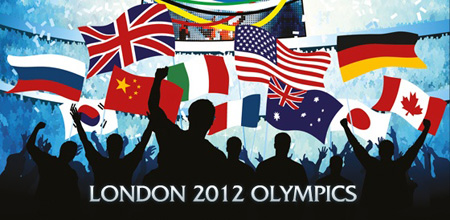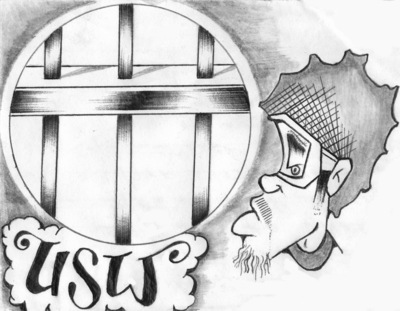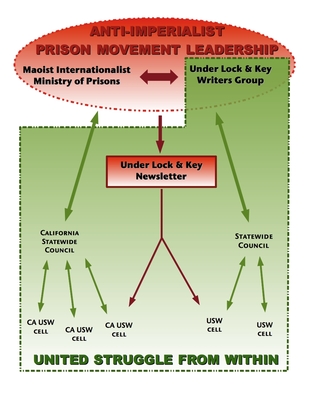
In Political Struggle, Remember the Process is Dialectical
I’ve recently been engaged in an ideological struggle with a fellow Chicano and potential anti-imperialist ally concerning the current state of captivity of the Chicano nation by the imperialist United $tates, it’s liberation, the oppressive and exploitative reality that Third World people are subjected to on a daily basis, and of the unique place the lumpen of the internal semi-colonies exist in all of this. Needless to say, we’ve been discussing some highly political and philosophical questions and topics not necessarily confined to the existentialist school of thought, but rather questions and topics more closely tied to the very existence of Third World people in an imperialist dominated world. We’ve also touched on the psychological baggage better known as alienation which imperialism itself ties to the individual, whether in the First World or the Third. These discussions have been had not within the context of mere conversational purposes, but for the explicit purpose of waking up a potential ally not just to the reality of our own oppression as Chicanos, or of putting the reality of our oppression into complete context for him; but so as to wake him up to his own productive power as a revolutionary force within the belly of the beast.
After struggling with this individual on a molecular level and trying my hardest to consistently put the correct political line forward; then banging my head on the ideological bourgeois brick wall which this individual vehemently represented every time he opened his mouth, I understandably felt frustrated and decided to terminate any and all further political struggle with this persyn, being that he didn’t really seem to want to struggle with objective answers and analysis from a revolutionary nationalist perspective; but rather seemed content blindly defending those cherished Amerikan values or “sugar coated bullets” which we’ve all been spoon fed from birth.
After some time however and his insistence that I read one of his bourgeois science books (college edition) for meaningless mental exercise, aka intellectualism, I begrudgingly agreed on one condition. If I was to read his bourgeois science book then he was to read and study my Marx; he agreed.
After a couple weeks and after answering the occasional philosophical question from him this persyn surprised me by revealing that he’d been grappling not just with the Marx book I’d sent him, but with the topics we’d previous discussed. Discussions which began with evolution and religion but which quickly spiraled into heated philosophical and political debates ranging in everything from the origins of the humyn species and society, to super-profits and everything in between. And it was during this time that I suddenly realized something I’d obviously lost sight of.
It wasn’t that he necessarily disagreed with my political beliefs because of some inherent class bias as a First Worlder. Rather he disagreed with the proletarian worldview exactly because of a First World ideological bias that defined his worldview. And one does not change one’s worldview easily.
It’s therefore important for revolutionaries that are new to the anti-imperialist game to keep in mind that anytime we engage in political discussion with the philistine, we’re going up against 500 plus years of colonization, not just in the material world, but in the ideological field as well; as social consciousness is both consciously and unconsciously bourgeois in the era of imperialism. We must fully understand that none of us are born with the slightest inkling of the communal/communist/proletarian worldview, rather, it must be cultivated. What’s more, political struggle in the ideological realm just like struggle in any other realm is essentially a matter for dialectics to resolve in which battles are won one at a time until one factor or another gains dominance and emerges victorious.
Therefore, it’s equally important to remember that whenever we’re speaking politics we’re in essence engaging in a struggle over political line between the oppressed which we represent, and the national and class enemies whose mouthpieces are not always readily apparent, but inconspicuous, especially in a First World society such as ours where we have not just open and closet Trotskyists who are peddling revisionism on the prison masses in the guise of “revolution”, but honest comrades who inadvertently and thru no fault of their own push an incorrect line due to a low level of political development and understanding. Therefore, we must ensure that this polemical struggle isn’t simply narrowed down to and carried out through out the confines of the open national and class enemies of the oppressed nations, but continuously carried out throughout the class conscious in keeping with Mao’s dictum of continuous revolution. Continuous revolution, or continuous struggle, being the only method available to defeat not only old and reactionary ideas which are at the service of the bourgeoisie, but new age and mystical ideas as well, which aren’t really “new or mystical at all, but simply repackaged bootlegs of the bourgeoisie and status quo who seek to entrench themselves and the enemy line in the revolution in order to ruin it from within.
Revolutionary thought during this stage of the struggle must have a shock and awe type value characteristic of the new defeating the old in which every spectrum of life is held up to the light of revolutionary science, declare it’s rationale, or surrender it’s right to existence. If so-called revolutionary thoughts and synthesis don’t offer or illuminate the best path forward then they too must cease their right to exist and clear the way for something new, or rather something tried and true, i.e. Maoism. Thus it is no surprise that Maoism serves as a two pronged “-ism” (philosophical and political) which leaves the bourgeois-minded agape and in existential doubt as to the state of reality and their place in it. Now, this may simply be old hat to the battle tested revolutionary, but twas not for me, as I myself found this point made ever so clear through polemical practice. Indeed, just as communist parties that are engaged in armed struggle are more politically developed than those that are not, so is the individual engaged in polemics.
Simply reading one Marxist book doesn’t make one a Marxist, and simply winning one individual battle doesn’t win the war. It was foolish of me to expect the potential ally mentioned in the beginning of this report to be won over to the side of the oppressed simply because he himself is objectively oppressed. My overestimation of the revolutionization process with respect to this individual was itself a failure on my part to properly utilize the dialectical method; as nothing in this world develops evenly.
Bourgeois ideology was and remains the dominant ideology within said individual, and my initial failure to fully grasp this point is proof positive that in all aspects of life there is always a struggle between two classes, two lines, and two roads, and thus will be the case until the end of property relations. My initial failure to win him over to the side of the oppressed is objectively a victory for the bourgeoisie and further drives home the point that education cannot be separated from transformation; but some seeds have been sown and the revolutionary sprout is slowly beginning to break free from over 500 years of colonization. It seems this persyn is slowly beginning to take up an interest in revolutionary politics; a direct result of our interaction. A small political win, in a small political battle for a correct political line, which on a world scale is perhaps equal to the rising forces of the oppressed and repressed revolutionary forces which have begun to seriously re-develop within u.$. borders.
It is the politics of the oppressors that have put us in here and thrown away the key, and it will be the politics of the oppressed that will set us free. If there is anywhere in the United $tates where politics should take center stage, it is in the prisons and jails; concrete proof in the most literal sense that there is an ideological struggle actively going on between the oppressors and the oppressed, in which the oppressor nation obviously has the upper hand.











